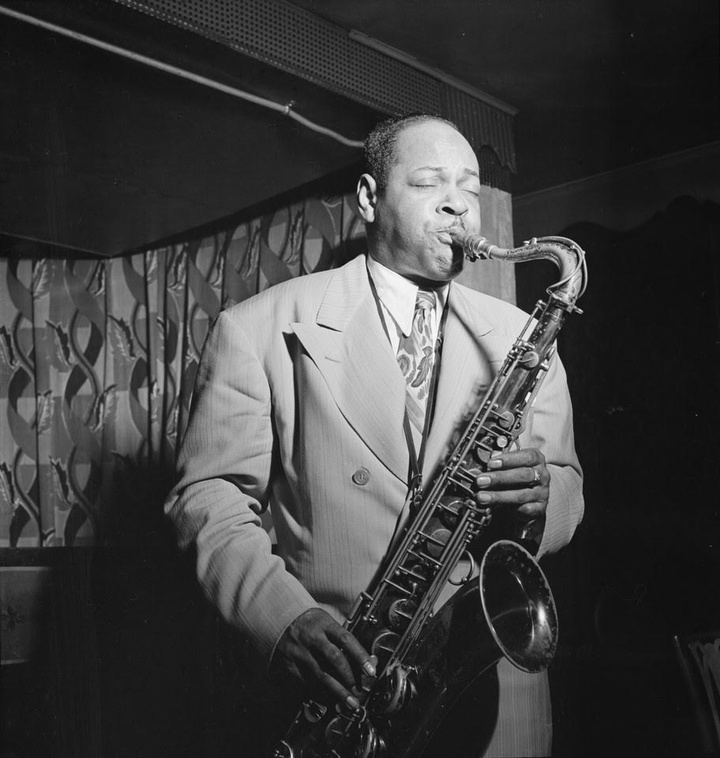
Coleman Hawkins, 1904-1969 (William Gottlieb, public domain).
“If you don’t make mistakes, you aren’t really trying.” - Coleman Hawkins
Saxophonist Hawkings—”Hawk”—knew where of he spoke. He practically introduced the tenor sax into the jazz repertoire, and was one of the founders of bebop with his—what was then—astonishing version of “Body and Soul” (supposedly the most recorded jazz standard). Hawk’s 1939 recording is nearly devoid of the song’s lovely melody (check out any of Ella’s versions for that)—instead, it’s nearly all harmonic improvisation. In my book, improvisation is often another word for “mistake”—I forget the words of a song, I get lost walking, I confuse Puerto Rico with Costa Rica. How many such “mistakes” over the years did Hawk have to make before his improvisations sounded so sweet and soulful that they introduced a whole new way of interpreting music?
I was reminded of Hawkins’ line about mistakes when checking out “Westworld,” the spooky hit HBO series based on Michael Crichton’s sci-fi tale, made into a 1973 movie with Yul Brynner as the rogue android. In the first episode, Anthony Hopkins, playing the theme park’s equally spooky designer Robert Ford (Ford, as in the “Brave New World deity?) gets the cool line, “Evolution forged the entirety of sentient life on this planet using only one tool: the mistake.” No argument from this Darwinian.
Back in my more woo-woo days, I had framed on my bedroom wall the Rules of Life, I think it was called. One of the first rules was “There are no mistakes, only lessons…’failure’ is as much a part of life as ‘success’.”
Well, yes and no. There really were some failures, some dumb things I did that I will forever regret. My friend G wants, as her “leaving the planet” music, Edith Piaf’s “Je ne regret rein” (I regret nothing). A sentiment which I totally respect, but have a hard time buying into. Me, I regret, for instance, not staying longer with my mum the last time I saw her—I knew she didn’t want me to go, although, post-stroke, she had trouble verbalizing that. She died a month later, while I was back in California.
Discussing this with Louisa, she regrets not keeping her knees together on her first (and last) parachute jump. As a result, she no longer runs. We can, of course, rationalize: “Yeah, but if you hadn’t busted your ankle, you might not have taken up open-water swimming or stand-up paddling…” Sorry, but I’ve hung out in the county jail with inmates (facilitating meditation groups there) whose lives changed for the worst following a single mistake. Not “so-called mistakes.” Real, full-blown, everything-changed, nothing-to-rationalize mistakes.
And yet, and yet … how would we—our forebears—have ever learned morality, kindness, generosity, altruism, cooperation, honesty, compassion, if not for recognition of mistakes, aka regret? Learned and, over thousands of generations, incorporated into the genes you and I were born with? We’re naturally and on the whole “good” because of all the mistakes made by those who came before us. Perhaps it’s as simple as our individual mistakes benefitting the whole tribe, or species.
Which, unfortunately, doesn’t get any of us of the hook. “Mistakes, I made a few” … A few??? Tell you what, any time I get through a whole day without making a mistake, I’ll buy you all a drink. It’s the least I can do.
CLICK TO MANAGE